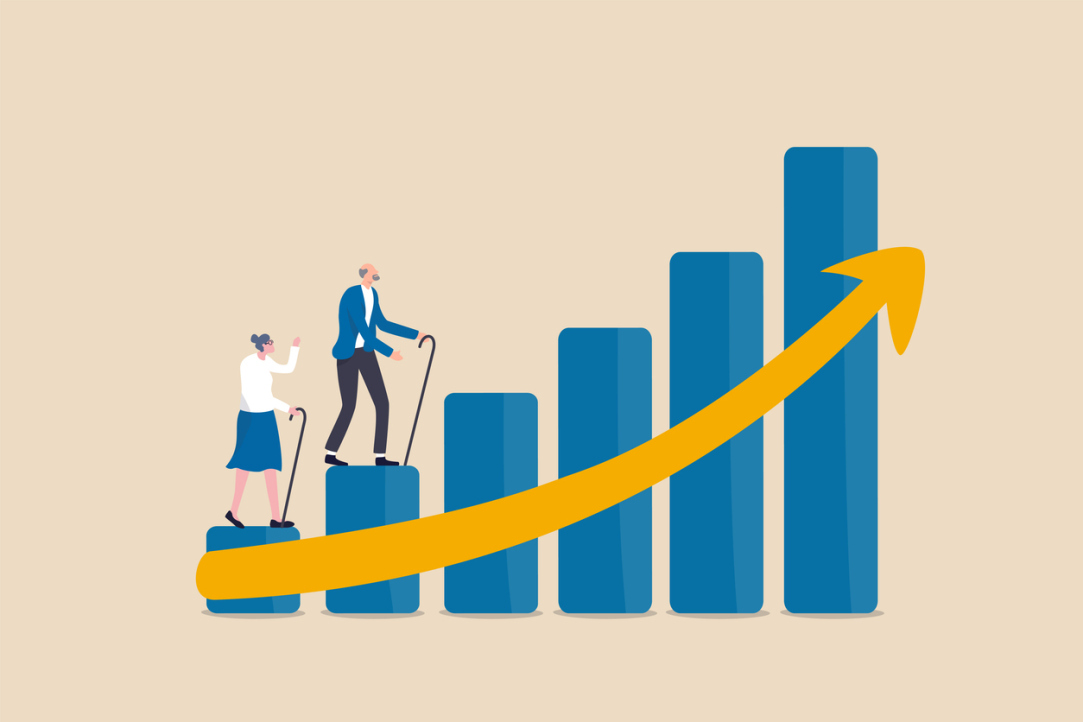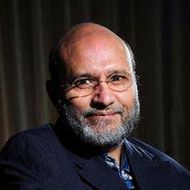‘We Grow Old before We Become Rich’: How BRICS Countries Can Achieve Economic Growth

Due to population aging, many countries aiming for economic prosperity have limited time left to undergo economic transformation, according to the honorary report Narratives Versus Reality on Employment and Demography: How Undermining Institutions Can Push Countries Out of the ‘Narrow Corridor’ by Santosh Mehrotra of the University of Bath. The report was presented at the XXV Yasin (April) International Academic Conference.
Many high-income nations had 200 years to undergo large-scale transformations, whereas today’s aspiring economies have less than 100 years to achieve similar growth. According to Mehrotra, climate change is also constraining countries' ability to achieve rapid economic growth. 'We need to generate wealth faster than countries did in the past. If we had a younger population and a larger workforce, there would be less cause for concern. However, we risk squandering our demographic dividend if countries fail to provide decent livelihoods for their citizens. Europe grew old after becoming rich, while we are growing old before we become rich. This puts even more pressure on states,' he said.

Santosh Mehrotra
According to Santosh Mehrotra, in light of an aging population, many countries are grappling with how to meet financial obligations and ensure the effectiveness of their healthcare systems. 'These are serious challenges, made worse by the high prevalence of informal employment in many countries,' said Santosh Mehrotra. While informal employment accounts for 21.2% of the workforce in Russia, it reaches 35.1% in South Africa, 47.9% in Brazil, 54.4% in China, and exceeds 88.1% in India, he noted. According to Mehrotra, many people in informal employment lack access to any social guarantees.
As part of his report, Santosh Mehrotra also highlighted the overhaul of the trading system that began during Donald Trump’s presidency, noting that it could lead to higher inflation and a global recession. 'The democratic United States becoming an unreliable partner is bad for the entire world. We must begin challenging the dominance of the United States in all areas,' he said, adding that the BRICS countries must continue to actively pursue collaborative projects.
According to Santosh Mehrotra, to achieve economic growth, countries must implement sound macroeconomic policies, maintain open markets, strengthen institutions, and actively invest in education. 'The quality of human capital is crucial for growth. The emergence of technical innovations and productivity growth depend on what investments have been made in human capital,' he concluded.
See also:
Applications to Participate in April International Academic Conference Now Open
HSE University is now accepting proposals to present academic reports at the XXVI April International Academic Conference named after Evgeny Yasin. Applications can be submitted until December 16, 2025. The conference events will take place mainly on-site in Moscow from April 14 to 17, 2026.
24 Countries Represented at 25th Yasin International Academic Conference Held by HSE University
The Programme Committee of the 25th Yasin (April) International Academic Conference on Economic and Social Development has summed up the initial results. In 2025, 1,384 people from 24 countries and 29 Russian regions participated in the conference, with 335 of them delivering presentations.
Stuck in the Net: How Much Time Children Spend Online
On average, a schoolchild spends 48 hours a week on studies—equivalent to a six-day working week for an adult. This was highlighted by experts at the round table ‘Domains of Children’s Well-Being Evaluation for Human Potential and Evidence-Based Social Policy Development,’ held as part of the 25th Yasin (April) International Academic Conference.
Russian and Chinese Scholars Share Experience of Transformation of Doctoral Education
The Russian and Chinese postgraduate education systems originally borrowed their institutional frameworks from the Soviet Union. However, in the 21st century, they have evolved along different paths. While key performance indicators for postgraduate programmes in Russia are declining, China is seeing a rapid increase in the number of postgraduate students. These contrasting trajectories and the reforms undertaken in each country in recent decades were the focus of a roundtable discussion held as part of the 25th Yasin (April) International Academic Conference.
Nobel Laureate Proposes Solution to Markov Equilibrium Problem
In dynamic games, a Markov equilibrium involves strategies that guide players' behaviour based on the current state of the game, rather than its entire history. This approach is effective when players have access to complete information. But when uncertainty arises in the game—for instance, when players are unsure of who they are dealing with—this approach can become problematic. Eric Maskin, Nobel Laureate in Economics and Professor at Harvard University, addressed this issue in a paper presented at the XXV Yasin (April) International Academic Conference on Economic and Social Development held at HSE University from April 15 to 18, 2025.
‘The World Is Becoming More Complex and Less Predictable’: What Scientists Say about the Future
The future is now more difficult for researchers to forecast, and events that are hard to predict are playing an increasingly significant role. But there is good news too: scientists are confident that humanity will adapt to any changes. This was the focus of discussion at the International Symposium ‘Foresight in a Rapidly Changing World,’ which took place as part of the 25th Yasin (April) International Academic Conference.
Fragmentation and Bloc Formation: How the Global Economy is Changing
Sergey Dubinin, former head of the Bank of Russia and Professor of Finance and Credit at the Faculty of Economics at Moscow State University, has delivered an honorary address at the XXV Yasin (April) International Academic Conference. He spoke about the transformation of the global monetary and financial system, as well as the Russian economy.
More Children, More Happiness: HSE Experts Study Impact of Number of Children on Russians' Assessment of Happiness
Russians with children feel happier than those without children. At the same time, the number of children influences the assessment of happiness: the more children Russians have, the happier they feel. These conclusions were outlined inthe report ‘More Children, More Happiness: The Impact of the Number of Children on Russians’ Assessment of Happiness,’ presented at the XXV Yasin (April) International Academic Conference on Economic and Social Development, held on April 15–18 at HSE University. The study was conducted by Elena Churilova, Senior Research Fellow, and Dmitry Jdanov, Chief Research Fellowat HSE International Laboratory for Population and Health.
HSE Expands Cooperation with Gulf Countries
HSE University and the Centre for International Policy Research (Qatar) have agreed to collaborate in the field of social sciences, with plans for joint research, academic exchanges, and regular expert engagement. The agreement was signed during the roundtable ‘State Capacity and State Resilience in the Global South,’ held as part of the 25th Yasin (April) International Academic Conference at HSE University.
XXV Yasin (April) Academic Conference Kicks Off at HSE University
The anniversary 25th Yasin (April) International Academic Conference on Economic and Social Development will take place from April 15 to 18. This year, over a thousand applications were submitted to present at the conference, of which the Programme Committee selected 381 of the best research papers in their respective fields.


